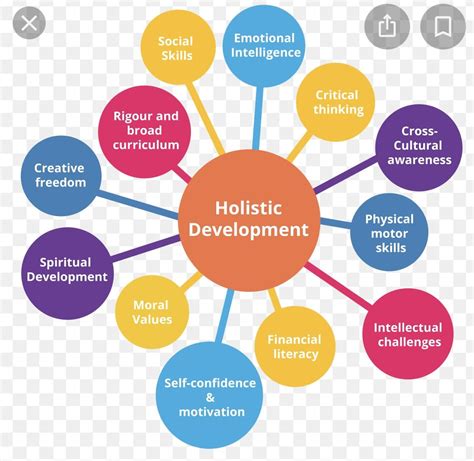Optimize recovery for peak performance? Best post-workout nutrition & sleep strategies.

In the relentless pursuit of peak physical performance, whether you’re an elite athlete or a dedicated fitness enthusiast, the spotlight often falls on the intensity of your workouts. However, true progress and sustainable success hinge not just on how hard you train, but on how effectively you recover. Recovery is not merely rest; it’s an active, physiological process that rebuilds, repairs, and strengthens your body, preparing it for the next challenge. Neglect it, and you risk plateaus, injury, and burnout. Embrace it, and you unlock your full potential.
The Power of Post-Workout Nutrition
What you consume immediately after an intense training session sets the stage for how quickly and efficiently your body repairs itself. This critical window of opportunity helps replenish depleted energy stores and kickstarts muscle protein synthesis. Ignoring post-workout nutrition is akin to driving a high-performance car without adequate fuel.
Carbohydrates: Refuel Your Energy Stores
During strenuous exercise, your body primarily uses glycogen (stored carbohydrates) for energy. Post-workout, these stores are significantly depleted. Replenishing glycogen is paramount for sustained energy levels and preventing fatigue in subsequent workouts. Aim for fast-acting carbohydrates like fruits, whole-grain bread, or specialized recovery drinks within 30-60 minutes post-exercise.
Protein: Rebuild and Repair
Intense physical activity causes microscopic tears in muscle fibers. Protein is the building block essential for repairing these tears and initiating muscle growth (hypertrophy). Consuming high-quality protein, such as lean meats, eggs, dairy, or plant-based protein powders, provides the amino acids necessary for muscle protein synthesis. A general guideline is to consume 20-40 grams of protein post-workout.
Hydration: The Unsung Hero
Sweat loss during exercise can lead to dehydration, impacting performance, mood, and cognitive function. Rehydrating with water and electrolytes is crucial. Electrolytes like sodium and potassium help maintain fluid balance and nerve function. Don’t wait until you’re thirsty; sip water throughout your workout and ensure adequate intake afterward.

Sleep: Your Ultimate Performance Enhancer
While nutrition addresses the physical components, sleep is where the magic truly happens on a systemic level. Often underestimated, quality sleep is perhaps the single most potent recovery tool available to athletes and active individuals.
Why Sleep Is Non-Negotiable
- Hormone Regulation: During deep sleep, your body releases human growth hormone (HGH), which is vital for tissue repair, muscle growth, and fat metabolism. Conversely, sleep deprivation can elevate cortisol (a stress hormone), which can break down muscle tissue.
- Muscle Repair and Synthesis: Sleep provides an extended period where your body can focus solely on recovery without the demands of conscious activity. Blood flow to muscles increases, delivering oxygen and nutrients for repair.
- Cognitive Function and Mood: Adequate sleep enhances concentration, reaction time, decision-making, and emotional resilience – all critical for optimal performance and injury prevention.
- Immune System Support: Sleep strengthens your immune system, making you less susceptible to illness and allowing consistent training.
Strategies for Optimal Sleep
- Maintain a Consistent Schedule: Go to bed and wake up around the same time each day, even on weekends, to regulate your circadian rhythm.
- Create a Restful Environment: Ensure your bedroom is dark, quiet, and cool. Blackout curtains, earplugs, or an eye mask can be helpful.
- Limit Screen Time: The blue light emitted from electronic devices can interfere with melatonin production, a hormone that regulates sleep. Avoid screens at least an hour before bed.
- Mind Your Diet and Hydration: Avoid heavy meals, caffeine, and alcohol close to bedtime.
- Establish a Pre-Sleep Routine: Engage in relaxing activities like reading, a warm bath, or light stretching to signal to your body that it’s time to wind down.

Synergy: Nutrition and Sleep Working Together
Neither optimal nutrition nor sufficient sleep can fully compensate for the lack of the other. They are not isolated components but rather interconnected pillars of recovery. Post-workout nutrition provides the raw materials, and sleep provides the ideal environment and hormonal signals for those materials to be effectively utilized. For instance, consuming adequate protein before bed can fuel muscle repair throughout the night, complementing the HGH released during sleep.

Putting It All Together for Peak Performance
Optimizing recovery isn’t a one-time fix; it’s a holistic, consistent commitment. By strategically approaching your post-workout nutrition and prioritizing quality sleep, you empower your body to adapt, grow, and perform at its highest level. Think of recovery as another crucial part of your training plan, one that demands as much attention and discipline as your workouts themselves.
Embrace these strategies, listen to your body, and watch as your performance metrics improve, your energy levels stabilize, and your overall well-being flourishes. The path to peak performance isn’t just about pushing limits; it’s about mastering the art of recovery.










